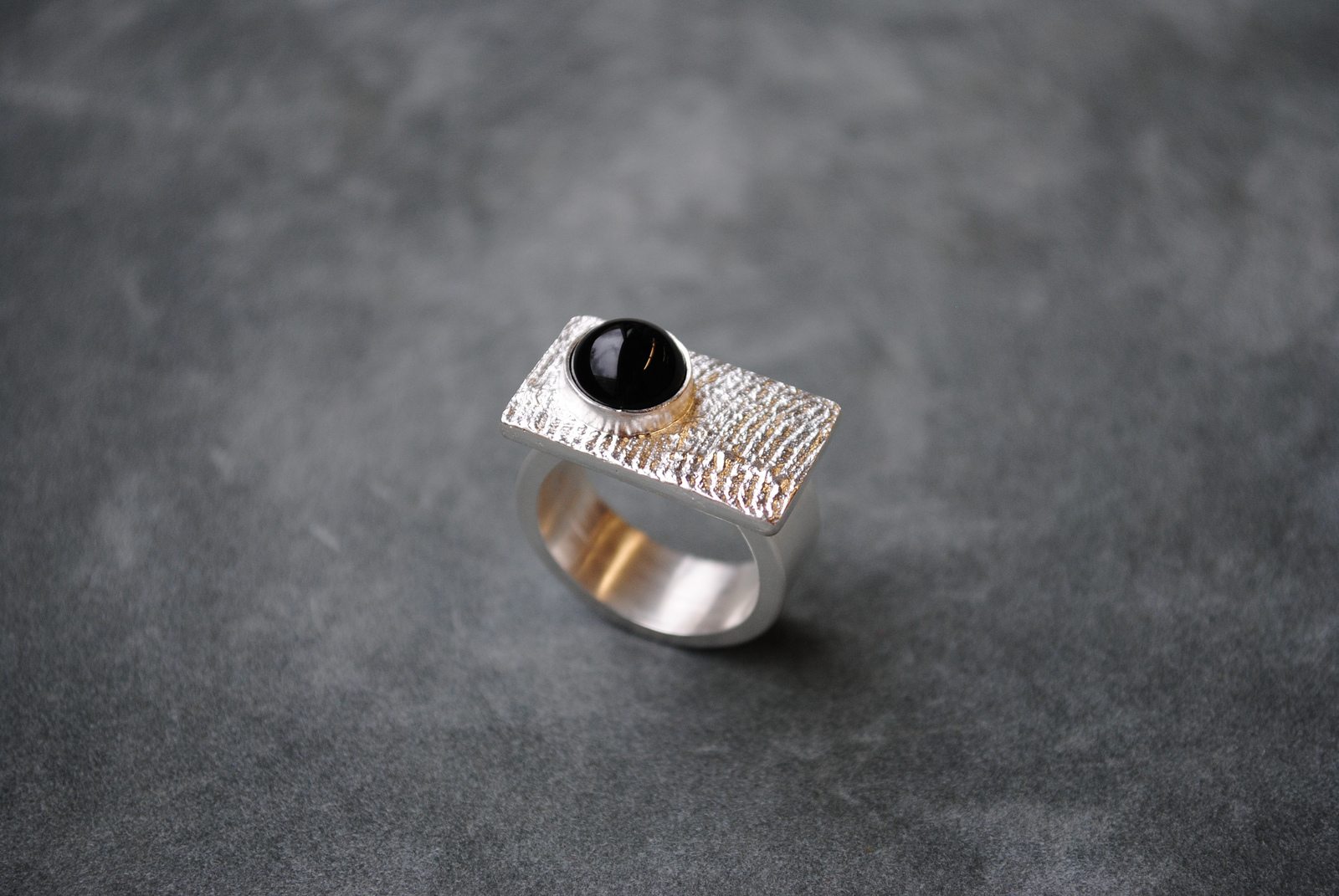What Are the Details Regarding the Sunna of Wearing a Ring for Men?
Hanafi Fiqh
Answered by Ustadh Tabraze Azam
Question: Assalam alaykum,
Is it sunna to wear a ring for man who has no use for it for stamping? Are alloys permissible for such rings? What is the permissible weight for a silver ring?
Answer: Wa alaykum assalam wa rahmatullah,
According to the Hanafi school, the basis is that it is sub-optimal and not sunna for a man to wear a silver ring, unless he has a need for it. The need in question was specifically understood to mean stamping, such as for the judge (qadi), as that was typically the only reason a man would need a ring in those contexts.
However, there are also occasions when some scholars have stated that wearing a ring is actually a sunna for all, namely, during the two Eids. The reason for this is that we find the Companions (sahaba) (Allah Most High be well-pleased with them all) wearing rings on such occasions, even though it was not their normal habit otherwise. The jurists (fuqaha) deemed this an exception to the general rule, and only affirmed it for these specific days.
The Ring: Weights and Alloys
The Messenger of Allah (Allah bless him and give him peace) said, “Make the ring from silver, and don’t exceed a mithqal.” [Abu Dawud; Tirmidhi]
What is understood from this and other traditions (hadith) is that rings from other metals such as iron, brass and the like, are deemed prohibitively disliked (makruh tahriman) and impermissible to wear for both men and women. Thereafter, there are two positions in the school: (a) the ring should weigh a mithqal, and (b) it should remain below a mithqal. Ibn ‘Abidin preferred the latter position based on the tradition cited, though both have basis and precedence within the school.
Moreover, there is a somewhat contemporary difference of opinion with respect to the specific weight of the ring. Interpretations of this measure vary from, minimally, just under three grams to a more expansive, approximately five. In any case, going beyond this weight would be improper, yet not blameworthy nor sinful, as the command is understood to be one of general recommendation and scrupulousness. Further, the jurists note that this weight applies to the metal part of the ring, not including the stone weight, if any.
As for the addition of a base metal to the silver, this is harmless because (1) this is the norm with most silver rings as pure silver is too soft on its own, and (2) what is considered is preponderance. Thus, if most of the ring is made of silver, such as the commonly used sterling silver, then it is deemed a silver ring, and if not, then it is not considered as such, and naturally, would fall under the aforementioned disliked category. As an aside, note that such a ring would need to be included in your zakatable assets.
[Shurunbulali, Maraqi al-Falah with Tahtawi’s Gloss; Ibn ‘Abidin, Radd al-Muhtar ‘ala al-Durr al-Mukhtar; Khadimi, Bariqat al-Mahmudiyya Sharh al-Tariqat al-Muhammadiyya; Zayla‘i, Tabyin al-Haqa’iq Sharh Kanz al-Daqa’iq]
Please also see: Are Men Allowed to Wear Rings Made from Gold and Other Materials? and: On Which Hand and Finger Should a Man Wear his Silver Ring? and: Is It Permissible for a Man to Wear a Ring Made of Tungsten? and: Is It Permissible to Wear a Ring on My Index Finger? and: Are Jewellery Made of Other than Gold or Silver Permissible for Females? [Shafi’i School]
And Allah Most High alone knows best.
قال في تبيين الحقائق: ((والحلقة هي المعتبرة ؛ لأن قوام الخاتم بها ولا معتبر بالفص حتى يجوز من الحجر ، ويجعل الفص إلى باطن كفه بخلاف المرأة ؛ لأنه للزنية في حقها والأولى أن لا يتختم إذا كان لا يحتاج إليه ، وإن كان يحتاج إليه كالقاضي والسلطان يختم به إذا كان من فضة ، …، ولا يزيد وزنه على مثقال لقوله عليه الصلاة والسلام «اتخذه من الورق ، ولا تزده على مثقال»)) اهـ.
وفي مراقي الفلاح: (((ويظهر الفرح) بطاعة الله وشكر نعمته ويتختم)) اهـ.
وفي الطحطاوي على مراقي الفلاح: ((قوله : ويتختم لما روي أن من كان لا يتختم من الصحابة في سائر الأيام يتختم يوم العيد كذا في الشرح)) اهـ.
وفي بريقة المحمودية: ((«قال من أي شيء أتخذه؟ قال: من ورق» أي اجعله ناقصا عن مثقال «ولا تتمه مثقالا» وهو درهم ونصف نهي إرشاد إلى الورع فإن الأولى أن يكون الخاتم أقل من مثقال فإن أتمه أو زاد عليه جاز)) اهـ.
وفي ردّ المحتار: ( (قوله ولا يزيده على مثقال) وقيل لا يبلغ به المثقال ذخيرة. أقول: ويؤيده نص الحديث السابق من قوله – عليه الصلاة والسلام – «ولا تتممه مثقالا» ((قوله وترك التختم إلخ) أشار إلى أن التختم سنة لمن يحتاج إليه كما في الاختيار … ومقتضاه أنه لا يكره لقصد الزينة والختم وأما لقصد الزينة فقط فقد مر فتدبر)) اهـ.
wassalam,
[Ustadh] Tabraze Azam
Checked and approved by Shaykh Faraz Rabbani
Ustadh Tabraze Azam was born and raised in Ipswich, England, a quiet town close to the east coast of England. His journey for seeking sacred knowledge began when he privately memorized the entire Qur’an in his hometown at the age of 16. He also had his first experience in leading the tarawih (nightly-Ramadan) prayers at his local mosque. Year after year he would continue this unique return to reciting the entire Quran in one blessed month both in his homeland, the UK, and also in the blessed lands of Shaam, where he now lives, studies and teaches.
Photo: Brian Coffey
